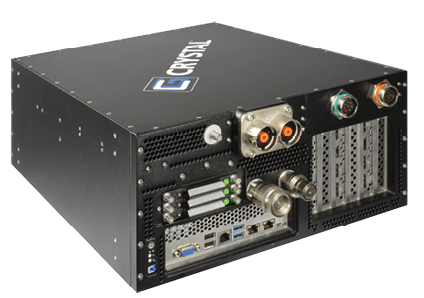As the trucking industry continues to implement autonomous vehicles into their fleet, they need compute hardware that is built with their requirements, environments, and possible challenges in mind. The Crystal Group AV server line was designed specifically for this industry as trucks are adding more autonomous capabilities.
To be successful in this transition, the most obvious concerns about autonomous driving must be addressed: safety and reliability. The computing hardware in these trucks must be extremely reliable, in any condition due to the number of lives on the line.
The systems are built to provide seamless real-time situational awareness and operation regardless of ever-changing conditions. Crystal Group’s autonomous vehicle compute (AVC) solutions are designed to combine proprietary ruggedization techniques and 12-32 VDC, ATX-compliant servers with the latest NVIDIA GPUs. By implementing ruggedized solutions, data processing lags or drops are prevented, improving safety and reliability.
Using a power supply that interfaces directly with the vehicle’s battery, the need for a separate power converter has been eliminated while delivering up to 2,500 watts of power to interpret and act upon the massive inputs captured by the vehicle’s network of sensors, radar, and cameras.
An optional thermal management system transfers the waste heat outside of the vehicle to prevent throttling that can occur from the significant heat generated by power-hungry compute requirements.
“Equipping these substantial machines for safe, successful driverless operation with little or no human intervention requires us to understand the operational requirements in tandem with the range of environmental conditions to which they may be exposed,” said Micah Snodgrass, technical director at Crystal Group. “Ongoing, candid collaboration with our customers resulted in a custom solution with enhanced processing power, thermal management and shock absorption that not only met their functional requirements, but also raised industry benchmarks for safety, efficiency and reliability.”
Original article posted on IMC Newsdesk by William Payne.